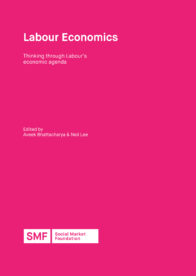With Labour Party having vowed to achieve the fastest growth in the G7, the SMF has brought together leading economic experts to provide independent analysis of the party’s proposed approach – and the gaps it needs to fill.
Back in the 1990s, there was a clear route to achieving growth – by “nurturing investment in industry, skills, infrastructure and new technologies”, and prioritising “educational and employment opportunities for all”, rooted in post neo-classical endogenous
growth theory.
Labour’s challenges are greater now than in 1997. But it is less clear how they will address them. There are a number of slogans and buzzwords floating around the Shadow Chancellor: “securonomics”, “the everyday economy”, “productivism”, “modern supply side economics”, yet these ideas remain underdeveloped or at least in need of elaboration.
This essay collection, drawing together contributions from some of the UK’s most notable economic analysts, all writing from a politically independent standpoint, as ‘critical friends’, is an attempt to identify and articulate this worldview – highlight the gaps it needs to fill. Across the 13 essays, each exploring a different area of economic policy, there are some common themes and ideas, which offer some indication of Labour’s thinking and priorities.
Contributors to the collection include: economist and life peer Baroness Alison Wolf, who was the Prime Minister’s skills adviser; Sir Tim Besley, who has served on the Bank of England Monetary Policy Committee; Anna Valero, LSE Policy Fellow and a member of the government’s Green Jobs Delivery Group; and Giles Wilkes, former business and No. 10 special adviser. The series is edited by SMF Interim Director Aveek Bhattacharya and Neil Lee, Professor of Economic Geography at the London School of Economics and Political Science.
The collection is published by the Social Market Foundation. The authors retain full editorial independence, and the analysis is intended to be non-partisan.

